A teenager has been pulled largely unscathed from beneath the rubble of a collapsed building in the Turkish city of Gaziantep – but the chances of finding many more survivors four days after a catastrophic earthquake killed tens of thousands are shrinking fast.
The 7.8 magnitude earthquake hit the border region between Turkey and Syria, an area with a population of 13.5 million, killing more than 20,000 people.
Before dawn in Gaziantep, near the epicentre of the quake, rescuers pulled Adnan Muhammed Korkut from the basement where had been trapped since the tremor struck on Monday.
The 17-year-old beamed a smile at the crowd of friends and relatives who cried tears of joy as he was carried out and put onto a stretcher.
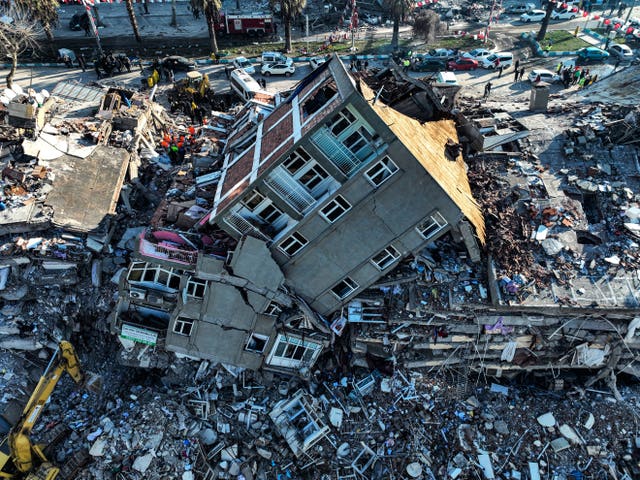
Trapped for 94 hours, but not crushed, the teenager said he had been forced to drink his own urine to slake his thirst.
“I was able to survive that way,” he said.
A rescue worker, identified only as Yasemin, told him: “I have a son just like you.
“I swear to you, I have not slept for four days. I swear I did not sleep; I was trying to get you out.”
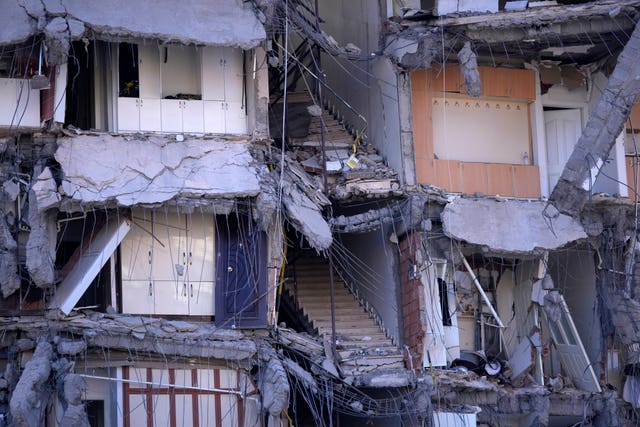
This total eclipses the more than 18,400 who died in the 2011 earthquake off Fukushima, Japan, that triggered a tsunami and the estimated 18,000 people who died in a tremor near Istanbul in 1999.
The new figure, which is certain to rise, included more than 17,600 people in Turkey and more than 3,300 in civil war-torn Syria.
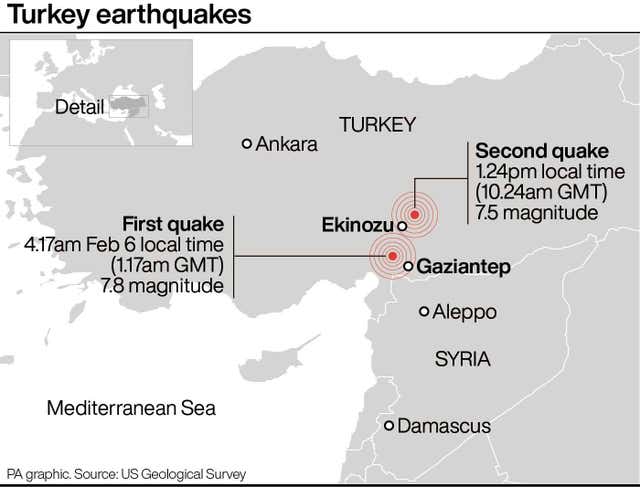
Aerial footage revealed the scope of devastation, with entire neighbourhoods of high-rises reduced to twisted metal, pulverised concrete and exposed wires.
Even though experts say trapped people could survive for a week or more, the chances of finding survivors in the freezing temperatures are dimming.
As emergency crews and panicked relatives dug through the rubble – and occasionally found people alive – the focus began to shift to demolishing dangerously unstable structures.
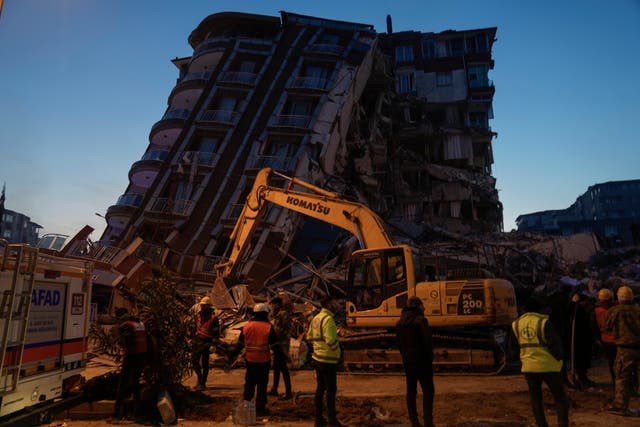
Workers continued rescue operations in Kahramanmaras, but it was clear that many who were trapped in collapsed buildings had already died.
One rescue worker was heard saying that his psychological state was declining and that the smell of death was becoming too much to bear.
In north-western Syria, the first UN aid trucks since the quake to enter the rebel-controlled area from Turkey arrived on Thursday, underlining the difficulty of getting help to people there.
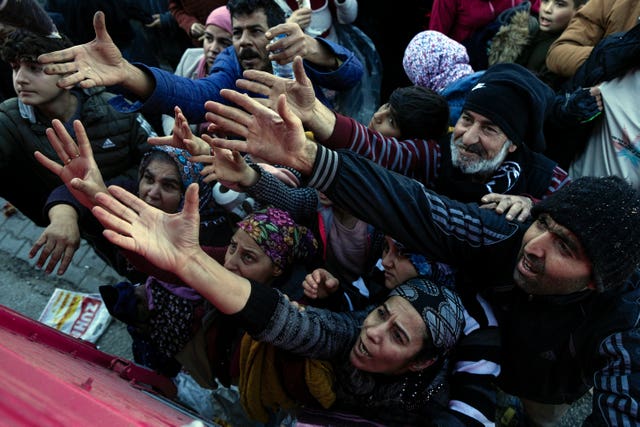
Many of those who have lost their homes found shelter in tents, stadiums and other temporary accommodation, but others have slept outdoors.
“Especially in this cold, it is not possible to live here,” he said. “If people haven’t died from being stuck under the rubble, they’ll die from the cold.”
To the people of Türkiye and Syria, know that the UK stands with you. pic.twitter.com/xwXd9S30C5
— Rishi Sunak (@RishiSunak) February 9, 2023
The winter weather and damage to roads and airports have hampered the response. Some in Turkey have complained that the government was slow to respond — a perception that could hurt Mr Erdogan at a time when he faces a tough battle for re-election in May.
Mr Erdogan has been visiting affected cities over the last two days.
Turkey’s disaster-management agency said more than 110,000 rescue personnel were now taking part in the effort and more than 5,500 vehicles, including tractors, cranes, bulldozers and excavators had been shipped.
The foreign ministry said 95 countries have offered help.






